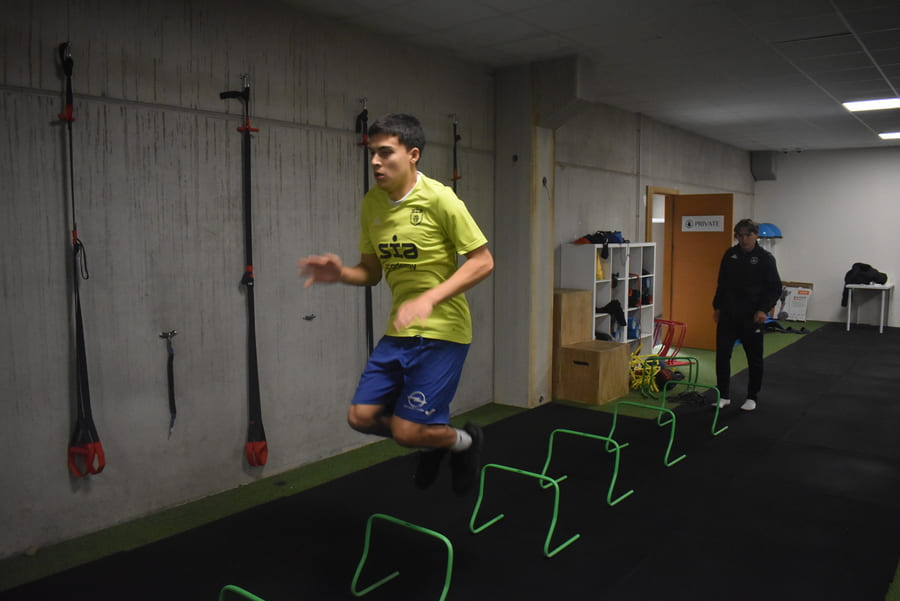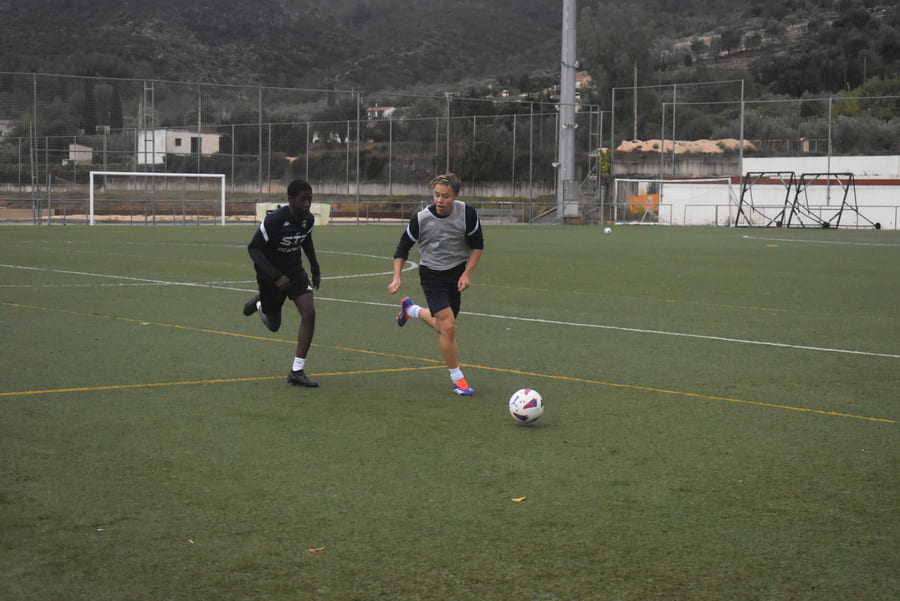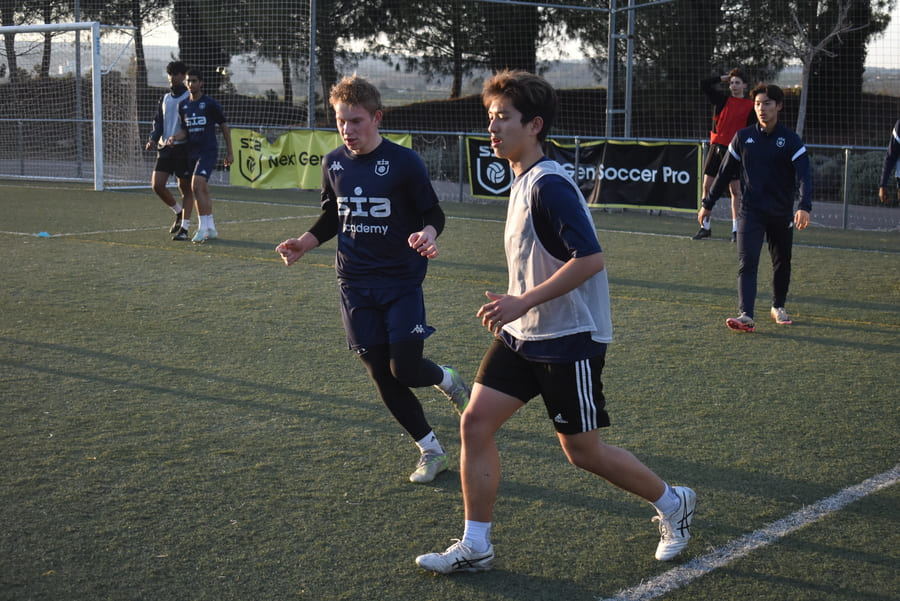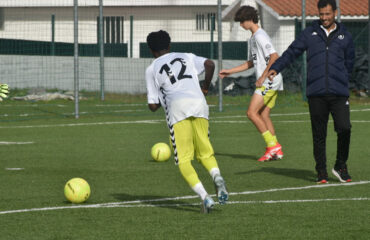Muscle cramps are one of the most common problems in football, both in training sessions and in high-intensity matches. A simple cramp can ruin a decisive counterattack, force a substitution, or condition a player’s performance throughout the competition. Although they are often associated with fatigue or lack of stretching, nutrition plays a key role in their prevention.
At SIA Academy, where the integral preparation of footballers is a priority, nutrition occupies a central place. According to Cristóbal, nutritionist at SIA Academy, “a player who does not properly adjust hydration and mineral levels is more exposed to suffering cramps at critical moments of the match”.
Below, we present a top 6 nutritional tips that can make the difference in avoiding dreaded cramps in football.
Table of contents
1. Smart hydration throughout the day
The most common mistake is to think that hydration only matters during the match. In reality, hydration must be constant before, during and after effort. Water regulates muscle function and helps transport essential nutrients.
Cristóbal sums it up clearly: “it’s not just about drinking water at halftime, but about arriving at the match with an optimal hydration level”. At SIA Academy, players are encouraged to drink fluids in small amounts throughout the day, prioritizing water and isotonic drinks with electrolytes in high-intensity sessions.

2. Ensure a good intake of electrolytes
Sweat not only eliminates water, but also minerals such as sodium, potassium, magnesium and calcium, which are essential for muscle contraction and relaxation. When these electrolytes decrease, cramps appear more easily.
A prevention nutrition plan includes:
- Adding potassium-rich fruits, such as bananas and melon.
- Consuming green vegetables to obtain magnesium.
- Not neglecting dairy products or nuts, sources of calcium.
In demanding training sessions, specialists at SIA Academy recommend the use of supplements or specific drinks that help replenish these minerals.
3. Maintain the right balance of carbohydrates and energy
Muscles need glycogen to function properly. When energy reserves are depleted, fatigue multiplies, and with it the likelihood of cramps.
That’s why it’s key to:
- Include complex carbohydrates such as rice, oats or whole wheat pasta in meals before effort.
- Combine with fast carbohydrates (fruit, white bread or sports bars) in the hours close to the match.
An energy deficit can be as dangerous as a lack of minerals. As taught at SIA Academy, the right fuel for the muscle starts on the plate.
4. Prioritize quality proteins for recovery
Although proteins are not directly associated with cramps, they do play a role in muscle recovery. A well-nourished and repaired muscle is less likely to suffer painful contractions.
Good sources include:
- Fish and lean meats.
- Eggs as a versatile, complete option.
- Legumes and tofu to balance the diet.
The balance between carbohydrates and proteins is part of what separates an amateur footballer from a high-performance one. In this sense, at SIA Academy, nutrition plans are individualized and adapted to training load.

5. Don’t forget magnesium, the anti-cramps mineral
Magnesium is one of the most mentioned minerals in cramp prevention. It is involved in muscle relaxation, preventing fibers from contracting involuntarily.
Recommended foods:
- Almonds, cashews and walnuts.
- Spinach and chard.
- Dark chocolate with a high percentage of cocoa.
Cristóbal reminds us that “many players are surprised to discover that a magnesium deficiency may be behind recurring cramps, even if they drink enough water”.
6. Adjust nutrition to the season phase
Not all times of the year demand the same thing. In preseason, training sessions are usually more demanding, while in competitive phases the goal is to reach peak performance in specific matches.
An individualized nutritional adjustment helps maintain balance and prevent cramps in each phase. At SIA Academy, the nutrition team adapts diets based on workload, climate, and player characteristics.
It’s not about eating well only on match day, but about sustaining healthy habits every day.
Cramps in football are not an inevitable destiny. With proper nutrition, well-planned hydration and control of essential minerals, footballers can significantly reduce their occurrence.
SIA Academy’s approach shows that physical preparation must go hand in hand with nutritional preparation, and that small adjustments in diet can make the difference between finishing a match at the highest level or suffering a cramp at the decisive moment.
Prevention is within everyone’s reach: hydrate intelligently, take care of electrolytes, adjust energy, prioritize proteins, incorporate magnesium, and adapt diet to the season. A simple plan, but with visible results on the pitch.






